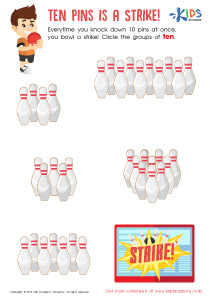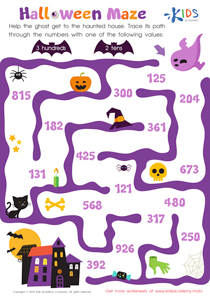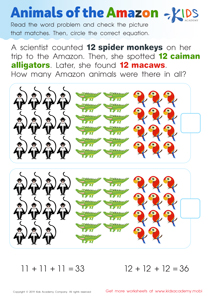Hard Geometry Quizzes for Ages 8-9
1 results
1 filtered results
Clear all filters1 filtered results
-
From - To
Unleash the potential of young minds with our "Extra Challenge Geometry for Ages 8-9" - the perfect suite of interactive assessment quizzes designed to inspire and challenge young learners. This engaging series caters specifically to children in the 8-9 age group, ensuring the content is both accessible and stimulating. Through a blend of thought-provoking questions and immediate feedback, these quizzes offer an immersive learning experience, enabling kids to explore the fascinating world of shapes, spaces, and measurements. Watch as your child embarks on a geometric adventure, sharpening their skills and deepening their understanding with every challenge they conquer.
In today's fast-paced educational environment, ensuring that children grasp the fundamental concepts of geometry from an early age is crucial. With this in mind, the Extra Challenge Geometry for Ages 8-9 series provides an invaluable resource for young learners. This innovative program is designed to captivate children's interest in geometry by transforming abstract concepts into interactive quizzes that are both fun and educational.
Geometry, as we know, is not merely about memorizing shapes and formulas; it's about understanding the world around us in a spatial context. The Extra Challenge Geometry for Ages 8-9 quizzes make this subject accessible and engaging for children, helping them visualize and comprehend complex ideas with ease. These quizzes cover a wide range of topics tailored to the 8-9 age group, including basic shapes, angles, perimeter, area, and volume, among others. By breaking down these concepts into interactive challenges, children can progress at their own pace, ensuring they grasp each concept fully before moving on to the next.
One of the key benefits of the Extra Challenge Geometry for Ages 8-9 is its ability to adapt to each child's learning style. The quizzes incorporate various question types, such as multiple-choice, fill-in-the-blank, and drag-and-drop, catering to visual, auditory, and kinesthetic learners alike. This personalized approach not only enhances the learning experience but also boosts children's confidence in their geometry skills.
Moreover, the interactive nature of the quizzes encourages critical thinking and problem-solving skills. Instead of merely recalling information, children are challenged to apply what they've learned in practical scenarios. This hands-on approach to learning helps children understand the real-world applications of geometry, making the subject more relevant and exciting.
The Extra Challenge Geometry for Ages 8-9 also provides immediate feedback, a crucial component in the learning process. This instant validation helps children identify areas of improvement and motivates them to keep practicing. Moreover, the quizzes are designed to introduce progressively challenging concepts, ensuring that children continue to develop their skills as they advance through the program.
Parental and teacher involvement is another significant aspect of the Extra Challenge Geometry for Ages 8-9. The program offers detailed progress reports and insights into each child's performance, allowing adults to identify strengths and areas for improvement. This feature enables parents and teachers to provide targeted support, further enhancing the learning experience.
In conclusion, the Extra Challenge Geometry for Ages 8-9 is more than just an educational tool; it's a comprehensive program designed to make learning geometry an enjoyable and rewarding experience for children. By combining interactive quizzes with a personalized approach to learning, this program not only helps children master the basics of geometry but also instills in them a love for the subject. As children navigate through the challenges, they develop critical thinking, problem-solving skills, and a deeper understanding of the world around them, laying a solid foundation for their future studies in mathematics.













